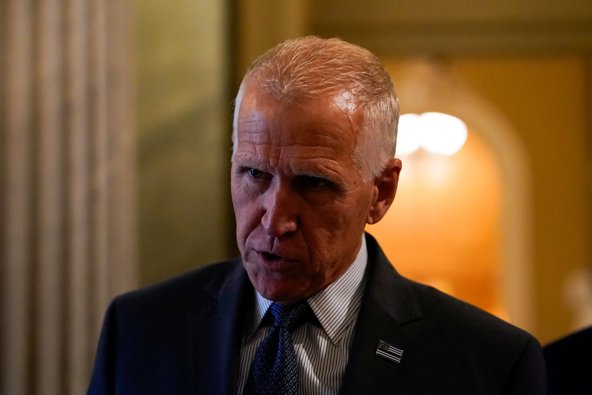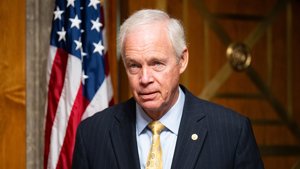
Tillis to Retire, Sparking North Carolina Senate Battle
Sen. Thom Tillis retires after voting against Trump’s bill, setting up a high-stakes race for North Carolina’s Senate seat.
Tillis to Exit Senate After GOP Feud and Medicaid Clash
Senator Thom Tillis, a North Carolina Republican who broke with his party to oppose President Donald Trump’s high-profile “big, beautiful bill,” announced Sunday that he will not seek reelection in 2026. The move follows weeks of political fallout and threats from Trump to back a primary challenger after Tillis joined Sen. Rand Paul as the only two Republicans voting against advancing the sweeping legislation.
Tillis cited deep frustration with the rising partisanship in Washington and what he described as a shrinking appetite for bipartisanship and independent thinking. “In Washington over the last few years, it’s become increasingly evident that leaders who are willing to embrace bipartisanship, compromise, and demonstrate independent thinking are becoming an endangered species,” Tillis wrote in his statement. He praised former Sens. Joe Manchin and Kyrsten Sinema for their willingness to stand against party pressure, lamenting that such independence is now met with censure rather than celebration.
The North Carolina senator explained his decision as a choice between spending another six years navigating “political theater and partisan gridlock” or prioritizing time with family, saying, “It’s not a hard choice, and I will not be seeking re-election.” He left the door open to continued independent action in the Senate during his remaining term, signaling a willingness to oppose Trump on key nominations, as he did earlier in the year.
Trump’s Response and Immediate Political Fallout
The announcement comes after President Trump openly criticized Tillis as a “grandstander” and promised to interview potential primary challengers for the North Carolina seat. “Numerous people have come forward wanting to run in the Primary against ‘Senator Thom’ Tillis,” Trump wrote on social media, signaling an aggressive search for a candidate more aligned with his agenda and the Republican base.
The public rift between Trump and Tillis was amplified by the senator’s objections to deep Medicaid cuts in Trump’s legislative package, which he warned would harm rural communities and hospitals across North Carolina. Tillis’s opposition contributed to a contentious 51-49 vote to begin Senate debate on the legislation, with only he and Sen. Rand Paul, R-Ky., breaking GOP ranks.
Democratic strategists were quick to frame Tillis’s retirement as a blow to Republican hopes in the 2026 midterm cycle. Maeve Coyle, a spokesperson for the Democratic Senatorial Campaign Committee, argued, “Even Tillis admits the GOP plan to slash Medicaid and spike costs for families is toxic—and in 2026, Democrats will flip North Carolina’s Senate seat.”
National Republican Senatorial Committee Chair Tim Scott, R-S.C., countered that Trump’s popularity and the GOP’s decade-long hold on the state’s Senate seats would carry Republicans through the next election. “That streak will continue in 2026 when North Carolinians elect a conservative leader committed to advancing an agenda of opportunity, prosperity, and security,” Scott asserted.
New Faces Emerge in High-Stakes Senate Race
With Tillis stepping down, the contest for his seat is already underway. North Carolina GOP Rep. Pat Harrigan, a first-term congressman and former Army Special Forces officer, is among the first to signal interest in the open seat, according to sources close to the lawmaker. Harrigan, elected to represent the state’s 10th congressional district in 2024, would bring military and business experience to what is expected to be a crowded and competitive Republican primary.
Political observers anticipate that the open race will draw a broad field of candidates and intense national attention, given North Carolina’s status as a battleground state and Trump’s track record of winning the state three times. Democrats see the vacancy as a prime opportunity to flip a Senate seat and shift the chamber’s balance in their favor, while Republicans race to unify around a candidate who can hold the line for the party and President Trump’s legislative agenda.
Tillis’s departure marks the end of an era for North Carolina’s Republican representation in the Senate and underscores the shifting dynamics and high stakes facing both parties as the 2026 midterms approach. As the field takes shape and campaign season heats up, the outcome in North Carolina will serve as a barometer for broader national trends in party loyalty, bipartisanship, and the direction of U.S. politics.






